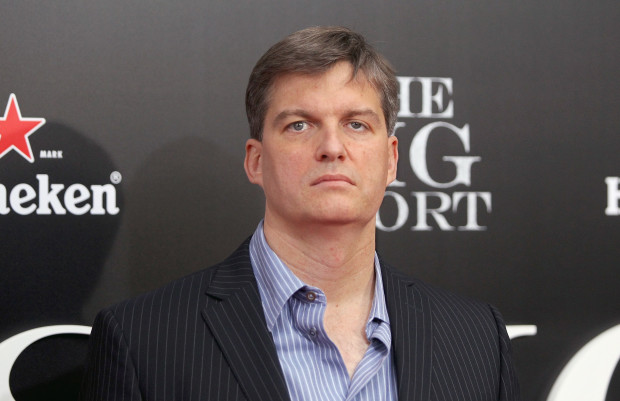An in-depth timeline of the GameStop short squeeze
January 2021 saw one of the most notorious short squeezes in market history as Reddit's army of retail investors took on hedge funds to drive struggling retailer GameStop's price sky-high.

GameStop (Nasdaq: GME), a video game retailer known for operating stores out of malls and shopping centers, was the go-to name in the game and console sales industry in the aughts. Once a favorite mall stop for America’s youth, teens, and game-oriented adults, by the mid-2010s, the retailer began to lose both cultural relevance and market share as shopping mall traffic waned and more of the gaming industry’s customers began to opt for online purchases.
By the end of the decade, GameStop’s business was struggling, and it showed in the company’s stock price. Hedge funds and other large, institutional players in the market had already begun to bet on the retailer’s demise, causing its stock price to dip below its per-share book value for much of 2019 as short selling drove share value downward.
When the COVID-19 pandemic shut down much of the retail economy in early 2020, it seemed GameStop’s fate was all but sealed. Over the next year, however, something unprecedented happened. A new generation of retail investors armed with pandemic stimulus money, unemployment checks, and lockdown free time, put their money to work in a collective attempt to take advantage of the company’s low share price and high short interest. By late January 2021, GameStop’s price skyrocketed to a premarket high of over $500 per share in what was perhaps the most notorious short squeeze in stock market history.
Below is a timeline of some of the key events that punctuated GameStop’s journey from struggling retailer to trending meme stock to hedge-fund toppling folk hero.
Note: GameStop conducted a 4:1 stock split on July 2, 2022. The share prices mentioned below (bold and italicized) are not adjusted for this split.
June 1, 2019: GameStop Stock closes at around $7.47 per share.
Mid-2019: Michael Burry’s private investment firm, Scion Asset Management, purchases over 3% of GameStop’s outstanding shares, believing the company to be undervalued by the market.
July 31, 2019: Bloomberg reports that GameStop’s short interest stands at around 57,226,706 of 90,268,940, meaning that over 63% of the company’s outstanding shares are currently sold short.
August 16, 2019: Michael Burry personally addresses GameStop’s board of directors in a letter, stating that his firm owns “2,750,000 shares, or about 3.05%, of GameStop.” Burry expresses “concerns regarding capital management” and urges the company’s leadership to continue to use its cash to complete large stock buybacks in order to increase the company’s earnings per share. 
August 30, 2019: GameStop stock closes at $3.97 per share.
September 30, 2019: By the end of 2019’s third fiscal quarter, the company had repurchased and retired about 34% of its outstanding shares.
December 31, 2019: GameStop stock closes at $6.08 per share.
July 2020: Keith Gill (Roaring Kitty) begins releasing YouTube videos explaining that he has held a position in GME since mid-2019 (around the same time Burry bought into the company) and believes the company is undervalued and over-shorted. Gill makes the same case on Reddit’s r/WallStreetBets as u/DeepF**kingValue.
August 31, 2020: GameStop stock closes at $6.68 per share.
November 2020: By November 2020, Ryan Cohen, an activist investor known best for his former role as CEO of Chewy, an online pet supply retailer, had purchased over 10% of GameStop’s outstanding shares.
November 30, 2020: GameStop Stock closes at $16.56.
December 8, 2020: GameStop hosts its Q3 earnings call. The company misses Wall Street revenue estimates due in part to pandemic-related store closures and reports an adjusted net loss of $0.53 per share, causing shares to slide sharply downward in after-hours trading.
January 4, 2021: GameStop stock closes the first day of January trading at $17.25.
January 11, 2021: Ryan Cohen, the activist investor who owns over 10% of GME stock, joins the company’s board of directors along with Alan Attal and Jim Grube, two e-commerce specialists who also used to work for Chewy.
January 13, 2021: GameStop stock jumps to an intraday high of $38.65 on the news of Cohen & Co’s appointments to the company’s board.
January 19, 2021: Citron Research, a prominent GME short seller, tweets that GameStop’s retail investors are “suckers at this poker game” and that the stock will fall “back to $20 fast.”
January 20, 2021: Citron Research cancels a planned report on short interest in GameStop amid supposed harassment from GME bulls.
January 22, 2021: GME’s short interest stands at around 140%, meaning 40% more shares had been sold short than actually existed on the open market. This occurred because shorted shares were re-lent and shorted again. Shares go up by over 50% to close at $65.01.
January 25, 2021: Citadel invests $2.75 billion in hedge fund Melvin Capital, which is heavily short on GameStop. More than 175 million GME shares are traded, and the stock closes at $76.79.
January 26, 2021: Elon Musk, CEO of Tesla and SpaceX, tweets “Gamestonk!!” and shares a link to r/WallStreetBets, the Reddit message board on which bullish retail investors discuss and promote GME. The stock surges, closing at $147.98.
January 27, 2021: Equity and options trading volume in the U.S. reaches its highest-ever single-day level (24.5 billion shares and 57.1 million contracts traded, respectively. GME sees its highest close of the squeeze at $347.51 after reaching an intraday high of around $380.
Melvin Capital and Citron cover most of their short positions at staggering losses.
January 28, 2021: GME reaches a pre-market high of over $500. Robinhood, a fee-free trading app popular among GME’s army of retail investors (along with several other popular brokerages) halts buying of GameStop stock but continues to allow sell orders), angering investors and prompting suspicions of market manipulation.
GME closes at around $193.60. The U.S. Financial Services and Senate Banking Committees plan a hearing for February 18 to discuss the GME phenomenon.
February 2, 2021: Janet Yellen, U.S. Treasury Secretary, requests a meeting of regulators to discuss the volatility created by the recent wave of retail trading. GME closes at $90.
February 4, 2021: Robinhood lifts remaining trading restrictions on GME and related stocks. GME closes at $53.50. 
February 18, 2021: A hearing titled “Game Stopped? Who Wins and Loses When Short Sellers, Social Media, and Retail Investors Collide” is held by the U.S. House.
Robinhood CEO Vlad Tenev speaks, assuring the panel that Robinhood does not have inappropriate relationships with hedge funds, claiming “We don’t answer to hedge funds … we serve millions of small investors who use our platform every day to invest.” Tenev claims that trading was halted because the clearinghouses that conduct the actual trades made on the company’s app raised their prices.
Keith Gill (AKA Roaring Kitty and u/DeepFuckingValue) speaks, exclaiming, “A few things I am not: I am not a cat. I am not an institutional investor, nor am I a hedge fund.” GME closes at $50.31.
February 19, 2021: GME falls to its post-squeeze low, closing at $40.59.
March 12, 2021: GME reaches a post-squeeze high, closing at $264.52.
After March of 2021, GameStop’s stock continued to see fairly drastic ups and downs, but none were as stark as January’s short squeeze. Overall, the trend was down between early 2021 and late 2023.
The stock remained popular, however, among both retail and institutional investors and among both bulls and bears, seeing higher volume and volatility than it had in the years leading up to 2020.
Whether the company’s director shakeup and strategic shift toward digital sales will spell long-term success for the video game retailer remains to be seen.
What's Your Reaction?

























































